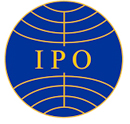|
The nation-state in
the global context
Because state sovereignty is founded
in the inalienable rights of the citizen, “re-sovereignization”
necessarily means re-democratization of politics, at the domestic
and inter-state level. Globalization has meant an erosion of national
sovereignty at all levels. In the European framework, supranational
structures have undermined democratic decision-making not only at the
domestic, but at the inter-governmental level as well. Irrespective of
increasing and ever more complex forms of international (i.e.
intergovernmental) co-operation, the locus of democracy is the sovereign
nation-state.
In many parts of the world,
including in the industrialized countries, particularly in Europe,
neoliberal globalization has meant a steady deterioration of the standard
of living for large sectors of the population and, accordingly, the
widening of the gap between rich and poor. In terms of socio-cultural
identity, globalization has also brought a uniformity of
life-styles and an increasing pressure to conform to standards set
by the dominant global player(s). (This also includes education policies
such as those of the OECD.) Under conditions of largely unregulated
markets and worldwide competition for ever cheaper labour costs, one
should not be surprised about the erosion of popular support for the
project of globalization, and particularly so in Europe. Who will defend
the rights and interests of the citizens in this entangled web of
worldwide and largely unregulated interaction where “survival of the
fittest” appears to be the overriding theme? Is it the nation-state
– where the individual’s political rights are ultimately anchored in, or
will the economic and social rights and aspirations (of individuals and
social groups alike) be better defended, and advanced, in the framework of
a regional grouping of sovereign nation-states, due to the synergy
effect of an arrangement that allows more efficient co-ordination of
policies than insular action of each state on its own?
The European dilemma
Under the present circumstances of
aggravating geopolitical tensions and the reemergence of a cold war
scenario, the crucial question will be whether Europe, and particularly
the group of states represented by the European Union, will be prepared
and able to emancipate herself/themselves from the dominant influence of
the United States, for many the erstwhile protector during the power
struggle with the Soviet Union. The entrenchment of a new, potentially
even more pervasive, bipolar division of the globe can only be
prevented if major regional groupings such as the European Union
effectively act independently of the dominant Western power, that, since
the period of the cold war, got used to its role of protector and, thus,
power-broker in the then member states of the European Economic Community
(EEC). Europe’s ability to do away with this legacy and challenge the
hegemonial rule of the transatlantic superpower will indeed be crucial for
the emergence of a multipolar order. Only such a structure,
representing a balance of power among all major actors, will
deserve the name “New World Order,” and not a system in which one
hegemonial country is the final arbiter of European politics. Europe’s
interests are the national interests of each and every member state of the
EU. It is the Europeans themselves who are called upon to define those
interests in consultation among themselves
– and not their transatlantic partners of the post-World War II era. The
traditional (historic) transatlantic partnership will have to be
transformed into a Eurasian partnership, which alone is in
conformity with the realities of physical geography as well as with
today’s geostrategic imperatives.
The meaning of
“re-sovereignization” in the global context
Under the circumstances of global
realpolitik – in an environment that is characterized by the
hegemonial drive of the self-proclaimed winner of the bi-polar power
struggle of the post-World War II era, re-sovereignization and
defense of the national interest mean regionalization, not
globalization, of the framework in which nation-states operate. The
latter (globalization), ultimately meaning subordination to the leviathan
of a world state, is not only incompatible with the requirements of
democracy, whether national or international; in its neoliberal
version (which appears to be the dominant one), it would also mean a
structural weakening of the social and economic rights of citizens
in many regions, not the least in the industrialized world. Only the
former model of inter-state cooperation (namely regionalization) will
contribute to the emergence of a multipolar world order that will
give hope for a stable balance of power in which the interests of smaller
or weaker states will not be marginalized, or virtually absorbed by a
global hegemon.
Prospects of European-Russian
relations
The prospects of European-Russian
relations must be seen in this inter-regional context. Under the
conditions of the 21st century, bilateral cooperation
between the multilateral entities “European Union” and “Eurasian Economic
Union” can be the basis for peaceful co-existence within the larger
Eurasian geopolitical framework. In order to be credible and sustainable,
this arrangement has to exclude, from the outset, the interference of
“third,” namely extra-regional, parties (such as the North Atlantic Treaty
Organization). The legacy of the earlier division of the globe in the era
of bipolarity cannot be carried on under the totally different
geopolitical conditions. A transatlantic security organization with a
(self-proclaimed) global mission does simply not fit into a
comprehensive framework of Eurasian cooperation. The overlapping of
structures of regional (economic and social) cooperation with military
(essentially hegemonial) structures such as NATO undermines the very
consistency and stability of these arrangements.
Frictions between regional
organizations – and their core states – can only be avoided if states at
the periphery are not drawn into a situation of rivalry between the major
member states of the two regions. Particularly in cases where the
territory is split along ethnic lines, those states should consider to
choose an internationally guaranteed status of neutrality. This is
even more important in a situation such as the one on the Eurasian
continent, where the security architecture is effectively “out of
balance.” Although the cold war between the erstwhile socialist and
capitalist blocs has ended more than two decades ago, one party’s security
organization, namely NATO, is still existing and even expanding – in spite
of the dissolution of its erstwhile rival, the Warsaw Pact. The cold war
doctrine of “containment” is not anymore conducive to peace in Eurasia.
The two “unions” along the Northern
axis of the Eurasian continent (EU / EAEU) are not be understood as
supranational entities, or super-states, but as groupings of sovereign
nation-states, representing the national interests of each and every of
its constituent members. Especially in an era of aggressive economic
globalization, individual states can better secure their national
interests – and eventually defend them vis-à-vis hegemonial tendencies of
the strongest global player(s) – in a well-defined framework of
intra-regional cooperation. It is to be recalled that a more effective
coordination of economic policies, with better international
competitiveness of every single member state, was also one of the founding
ideas behind the establishment of the then European Economic Community
(EEC).
Multipolar order of
the future
Intra-regional
cooperation within the EU and EAEU respectively, complemented by
inter-regional coordination of policies between the two
communities, is the best way to secure the sovereignty and vital national
interests of all involved states.
Dictated by the dynamics of globalization and by the absence of a balance
of power at the global level, this complex form of multilateral, and
multi-layered, intergovernmental cooperation is more than a mere vision;
it is the very rationale of a long-term strategy aimed at the
construction of a multipolar world order of which the European
Union and the Eurasian Economic Union could become two of the
cornerstones.
In view of geographical realities
and the imperatives of geopolitics, Europe should be prepared to embark
upon a trans-Eurasian partnership – instead of indulging in transatlantic
nostalgia and continuing to depend on a transoceanic “strategic
partnership” that has made the countries of the European Union hostage of
geopolitical confrontations that are not of their own choosing.
***
For details see Hans Köchler,
“Decision-making Procedures of the European Institutions and
Democratic Legitimacy: How Can Democratic Citizenship Be Exercised
at Transnational Level?” in: Concepts of democratic citizenship.
Strasbourg: Council of Europe Publishing, 2000, pp. 147-165.
On related structural issues of international relations see Hans
Köchler, “Global
Security in the Absence of a Balance of Power: The Importance of
Inter-regional Cooperation,” in:
The Global Community.
Yearbook of International Law and Jurisprudence 2008,
Vol. 1. New York: Oxford University Press, 2009, pp. 323-327.
For details see Hans Köchler, Unity in Diversity: Eurasia’s
Contribution to Civilizational Dialogue. Statement
delivered at the international conference “The Role of Historical
and Cultural Heritage in the Dialogue of Civilizations,” Almaty,
Kazakhstan, 9 June 2009. I.P.O. Online Papers, 2009, at
www.i-p-o.org/Koechler-Globalization-World_Order-IPO-OP-2009.htm,
ch. (I).
|

